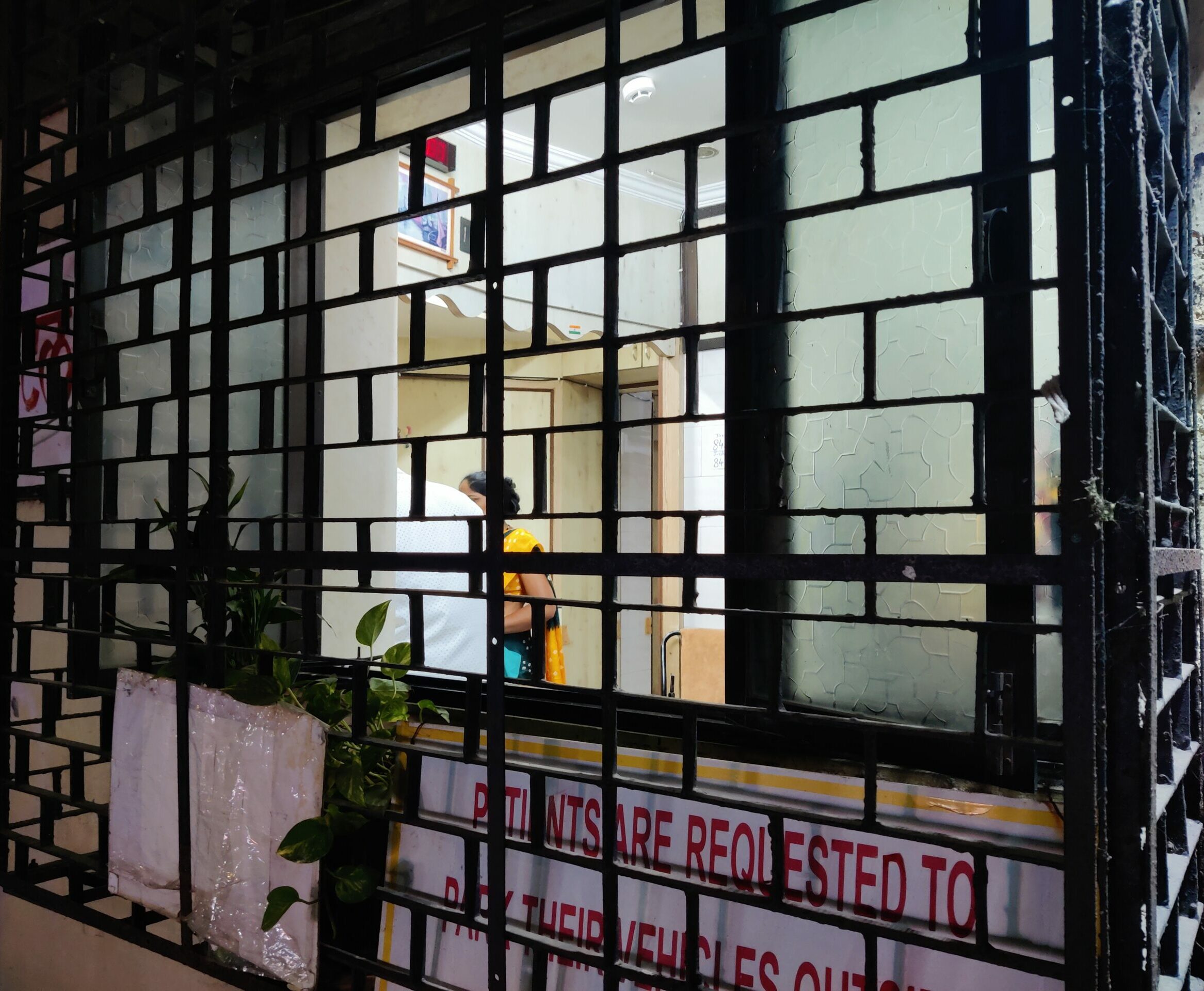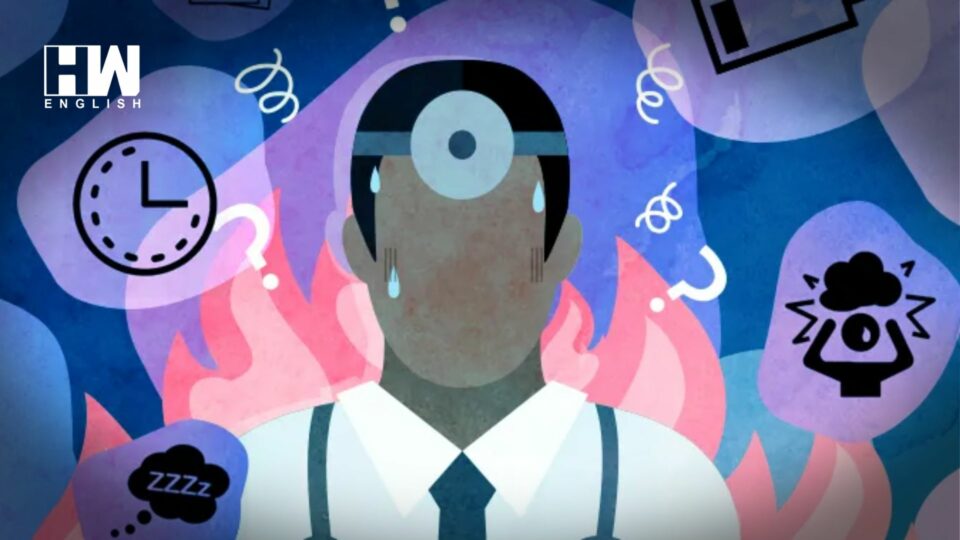TRIGGER WARNING: MENTIONS OF SUICIDE AND DEPRESSION. IF YOU OR SOMEONE YOU KNOW IS SUICIDAL OR DEPRESSED, PLEASE CALL A HELPLINE NUMBER IN YOUR STATE
Resident doctors say long working hours, and toxic work culture including alleged harassment by professors and bullying by seniors push many to take the extreme step.
Mumbai: Dr. Naresh (name changed) starts his day at 5:30am daily. A morning walk and a game of squash follow before he heads to his clinic in a suburb of Mumbai.
It was one fine day in December 2023 that he got a call.
Dr. Naresh was informed that his son – a 25-year-old resident doctor in Delhi – didn’t report to work. He was surprised.
“My first reaction [when he got to know that his son didn’t report to duty] was that it’s impossible to accept it. At 104 fever in his school days, he wanted to go to school. We used to insist that ‘don’t go’ but [he said] ‘no I want to go’” Dr. Naresh recounted.
Then, tragedy struck. His son was found hanging from a ceiling fan with a bedsheet. The young resident doctor allegedly died by suicide.
“Our dreams and so many of our expectations have been shattered… I thought he should have been more open to us. He should have been more open to his friends so that they could have helped him out. But now, all this is just speculation. Ultimately he is no more – that’s the fact”
A brief pause followed. As he continued to recount memories of his son, his eyes welled up with tears.
He said: “When we are alone, we feel like crying. We cry. Even my [younger] son must be crying – I haven’t asked him. I don’t have the guts to ask him.”
The pain of losing his son, Dr. Naresh added, is a “lifelong” one.
“We were 4 [people] so it was 100. Now we are 75. We’ve reached maybe 50-55. It will take time to reach 75 – maybe a couple of years or I don’t know,” an emotional Dr. Naresh said.

He emphasizes that his son was cut above the rest – a strong academic record, excelled at sports, and dedicated to serve the people.
Reportedly, the resident doctor was suffering from depression. His father, however, while speaking to HW News English said there was “nothing like that”.
But this – along with several other incidents across the country (here, here and here to mention a few) – brought the spotlight back on the mental health crisis among resident doctors.
A Right to Information (RTI) response from the National Medical Commission (NMC) in 2023 showed 64 MBBS and 55 postgraduate medicos died by suicide in the last five years.
Recent data from Lok Sabha shows Karnataka recorded 16 suicides among medical students – highest in the country in the last five years. Maharashtra and Gujarat rank second and third respectively, both reporting 14 deaths each.
Maharashtra reported three suicides among undergraduate students and 11 among those pursuing post-graduate degrees, making it the highest in India in the latter category.
According to a study, 358 suicide deaths among medical students (125), residents (105) and physicians (128) were reported between 2010 and 2019.
Around seven out of 10 suicides took place before the age of 30, the study said.
A resident doctor is a medical professional who has completed their undergraduate medical education and is pursuing a postgraduate specialization in a specific field of medicine.
These young doctors point to a variety of factors – long working hours, toxic work culture including alleged harassment by professors and bullying by seniors – that push many to take the extreme step.
Residents say they work at least 15-17 hours a day – sometimes even 24 hours at a stretch – leading to exhaustion and little time for themselves.
The Supreme Court in a ruling said residents shouldn’t work for more than 12 hours at a stretch and more than 48 hours a week.
‘Toxic HOD Gave Sleepless Nights’
On 28th December 2023, around 780 resident doctors at Mumbai’s JJ Hospital went on an indefinite strike. This was in support of the 21 resident doctors from the dermatology department who were on mass leave for the preceding two weeks.
Their demand – removal of department head Dr. Mahendra Kura.

In a letter, the Maharashtra Association of Resident Doctors (MARD) made a string of allegations against the then HOD. The complaints ranged from patient deaths due to wrong treatment to threatening residents.
Team Central_MARD demands
immediate termination & high end inspection of #HOD #Derma at #JJHOSPITAL #Mumbai
This kind of #ToxicCulture will not be tolerated anymore, no matter at what position he/she is#StopAbuse@CMOMaharashtra @Dev_Fadnavis @mrhasanmushrif pic.twitter.com/amNjzYztQ7— CENTRAL_MARD (@Central_MARD) December 15, 2023
“Even if a death has happened because of the HOD’s negligence, the blame has been shifted to us saying that we didn’t look after the patient properly,” a resident doctor at JJ Hospital’s dermatology department said.
She added: “When you know the patient could have been saved and isn’t, you can neither face the relatives nor yourself. Additionally, when the blame is shifted on to you, it’s too much to take mentally.. It becomes very tough. There have been nights – after experiencing all this – that I haven’t been able to sleep, can’t focus on studies either.”
Dr. Abhijit Helge, President of Central MARD (Maharashtra Association of Resident Doctors) claimed that many suicide attempts in the department went unnoticed.
He said: “Even if Dr. Kura knew about it, he was ignoring the residents”
A two-member committee under the Directorate of Medical Education and Research (DMER) investigated the allegations. Subsequently, Dr. Kura was transferred.
‘That’s What Residency Is About’
Earlier this month, the National Medical Commission (NMC), the apex regulatory body for medical education in India, issued new guidelines for postgraduate medical education.
The guidelines include equal stipends for PG students at private and government-run colleges, minimum casual leave, residential accommodation, etc.
The guideline remains ambiguous on working hours. It says residents will work for “reasonable working hours” and be provided “reasonable time for rest in a day”.
“We can’t define (working hours) because of the nature of the work. That’s what residency is about,” said Dr. Yogender Malik, member of the Ethics and Medical Registration Board (EMRB) and head of the media division at the NMC.
When asked about frequent cases of suicides among resident doctors, Dr. Malik called it “100% concerning and a loss to the nation”.
He said: “That’s why we are forming a committee. In any such case, NMC team will visit the place if we get regular complaints from one place to find out what’s wrong.”
Experts point out that many residents are shy to seek help, fearing judgment from their colleagues and parents.
The pressure, anxiety, troubles and apprehensions are bottled up – right from their MBBS days.
And for many, acceptance is tough.
“In my second year, there was a significant issue I had to deal with. It took me a lot of time to accept. From accepting or realizing that I was going through something to actually and seeking treatment was 6-8 months,” an MBBS graduate and UPSC aspirant said.
He pointed out that taking the prescribed medication felt “too unnatural” for him.
“I was at a position where I had contemplated ending all of it. The reason I survived was because I wasn’t alone. Till the time the [suicidal] impulse lasted, I had those firewalls which prevented me from committing such an act,” the MBBS graduate said.
Young doctors say a lack of empathy by their professors makes matters worse. Moreover, quitting isn’t an option either – or an expensive one at least.
Those vacating their PG seats have to pay a fine -an amount which varies from state to state. In Maharashtra, the penalty is Rs 20 lakh. In Madhya Pradesh, a junior resident doctor was asked to pay Rs 30 lakh as part of the “seat leaving bond” policy.
The NMC recently asked states and UTs to do away with the policy following complaints of mental stress from students.
Medical institutions, meanwhile, acknowledge that the workload of residents has gone up significantly – accentuating the need to ensure those who are struggling to juggle personal and a hectic professional life have adequate support.
Some have launched initiatives to ensure resident doctors have easy access to mental health professionals.
Dr. Sangeeta Rawat, Dean of KEM Hospital in Mumbai said: “They (residents) have to be bold enough if they are really troubled. You can go to a well but you have to drink the water yourself.
If you’re in trouble, you have to ask for help. You have to be strong enough to ask for it. Unless you don’t ask for it, you can’t expect it (help) to come.”
Experts explain lack of empathy for those struggling has a corresponding effect.
Dr. Sumedha Tiwari, a psychiatrist said: “Hopelessness, helplessness and worthlessness are three very important indicators of a person leaning towards suicide. The causes are not just work-related issues. In most cases, a multitude of factors.”
“When you do this [belittle those who are struggling], the person who genuinely has this issue will not come out in the open because they know the reaction they will get,” Dr. Tiwari added
Back in his clinic, Dr. Naresh continues to cater to his patients. He says he resumed work days after the tragedy struck – the “only” distraction from the grief.
“The show must go on,” he said.
Going forward, he wishes to be a professor in a medical college someday.
“I will be more than happy to save a couple of lives in my tenure,” Dr. Naresh concluded.
Also Read: Here Is Why Indian-Origin Doctor Penalized ₹1.41 Crore
As an independent media platform, we do not take advertisements from governments and corporate houses. It is you, our readers, who have supported us on our journey to do honest and unbiased journalism. Please contribute, so that we can continue to do the same in future.

